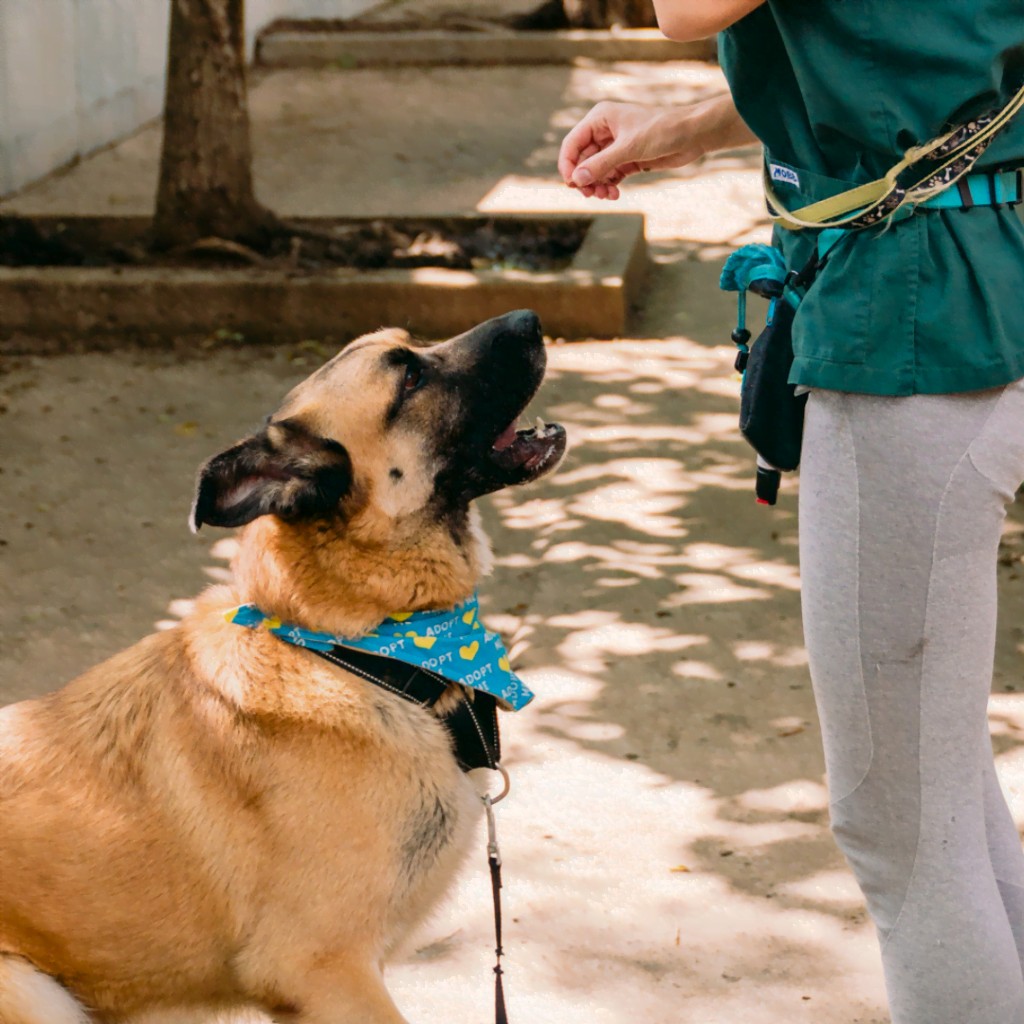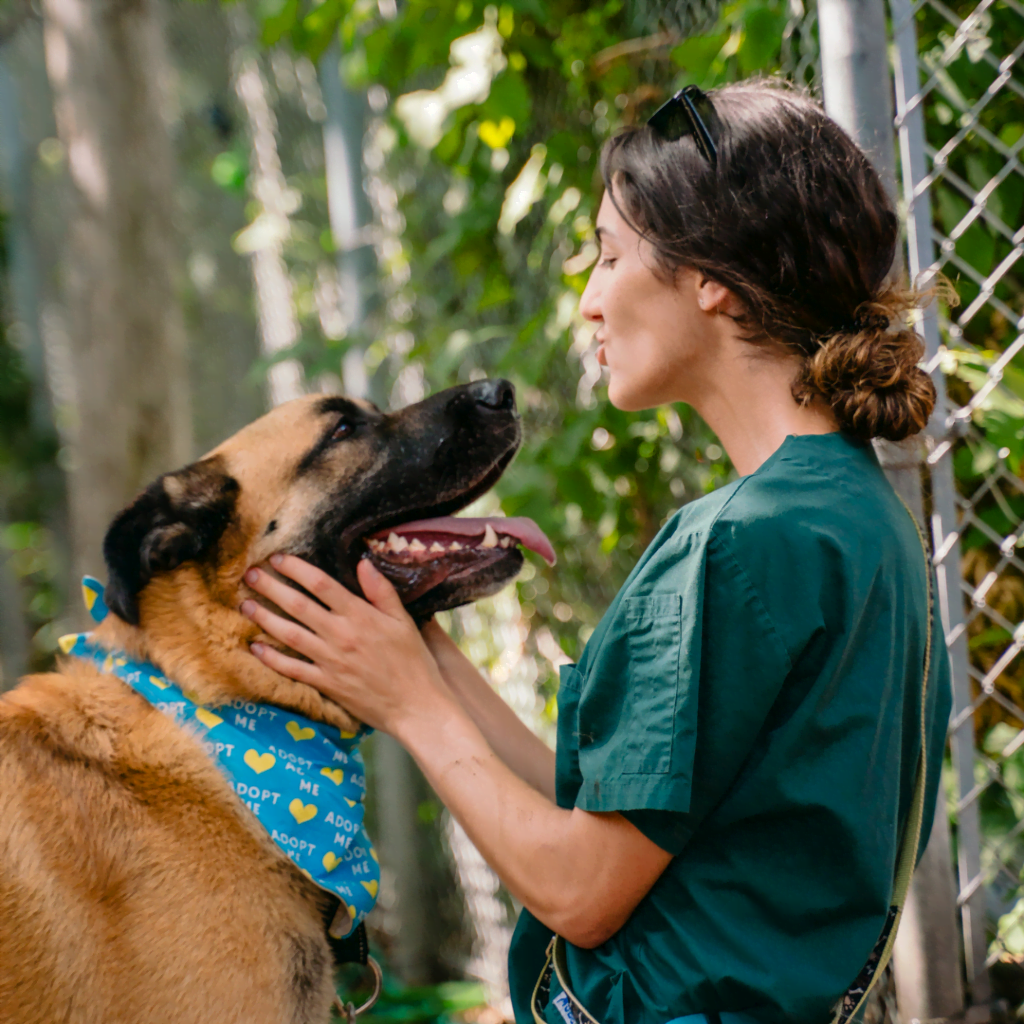Many people concerned about the psychological wellbeing of their cat or dog seek professional help from a behaviour consultant.
Whether to perfect their companion’s social skills, to modify an aspect of their behaviour or to develop new capabilities, there are several possible reasons why a person might look for such services.
In order to assist you in the process, here is a guide to help you choose your behaviour consultant.




Studies and Certifications
It’s essential to ask the right questions before paying for your animal’s education services in order to ensure that the person has proper training. While this might seem obvious, clients rarely ask these questions, and they therefore risk employing silver-tongued individuals. A qualified behaviour consultant will gladly provide you with the information you need.
It’s important to ensure the person you employ has kept their knowledge up to date thanks to continuous learning; animal psychology, like several other fields, is constantly evolving. In fact, several techniques developed in the 1990s are no longer recommended today.
Also ask the service provider if they hold a recognized certificate. Several professional groups and associations require that their members pass an exam to verify their knowledge and ensure they understand the essential elements of animal training. Most of these entities have a code of conduct or code of ethics that their members must respect. Although they aren’t perfect, these measures ensure that the members act with professionalism and use standard practices. A member who doesn’t respect the rules set out by their association can lose their certification following a complaint. Recognized certifications include those set out by the Regroupement québécois des intervenants en éducation canine (RQIEC), the International Association of Animal Behavior Consultants (IAABC) and the Certification Council for Professional Dog Trainers (CCPDT).
Experience
Certain people who have received very little training or who don’t have much experience charge very high prices for their services. As you would in any context, make sure you pay the right price for the services you’re receiving. Ask and compare rates to help you determine whether the price is reasonable.
Another tip is to check the success rate of the service provider’s interventions with past clients. Ask the behaviour consultant for references or search for reviews online.
Along the same lines, if you’re seeking help for a very specific issue, such as aggressive behaviours or separation anxiety, make sure the behaviour consultant has experience treating these issues before employing their services.

The Right Fit for You and Your Animal
As well as checking the behaviour consultant’s training, certifications and experience, ensure their training style and their personality suit you. For instance, if your dog is afraid of men, it could be wise to hire a woman to facilitate your companion’s training.
Another element to consider is whether the explanations and training plans are clear. If you don’t understand why or how to practice an exercise, you’re probably not getting the most out of your training sessions. Proper pedagogy and patience are essential qualities for all behaviour consultants.
The person must also be respectful both to you and to your cat or dog. The techniques proposed by the behaviour consultant should favour proper management of behaviours and the use of positive reinforcement to make the learning process pleasant for you and your animal. If your companion seems afraid or if you’re uncomfortable during the sessions, we recommend you immediately stop employing these services.

Red Flags
Avoid the following elements to find a competent behaviour consultant who fits your needs:
- 100% guaranteed services. Just as a teacher can’t ensure all their students will succeed, no matter their pedagogical expertise, a behaviour consultant should never guarantee positive results from their lessons.
- A problem “fixed in no time.” Be wary of people who promise ultra-fast results, because any behaviour changes will probably only be surface-level. As do humans, animals need practice and time to change their behaviour on a deeper level.
- Lack of transparency. A behaviour consultant must clearly explain their approach. If they’re unable to do so, it might be because their techniques are not ethical or because they’re not respecting the elements set out in the contract.
- The use of force or fear as a training technique. As previously mentioned, the learning process should be pleasant for you and your animal. Techniques based on intimidation and fear should under no circumstances be a part of canine or feline education as they can have negative consequences on your companion. If a behaviour consultant tells you they need to “dominate your dog” or “punish your cat for their disobedience,” you should hire a different professional.







